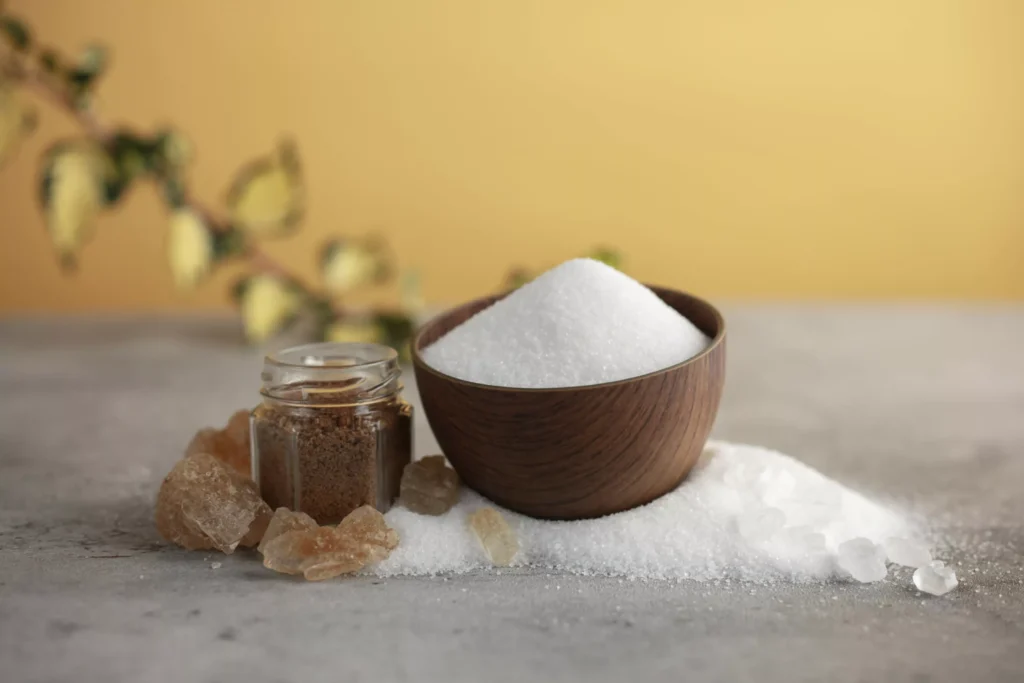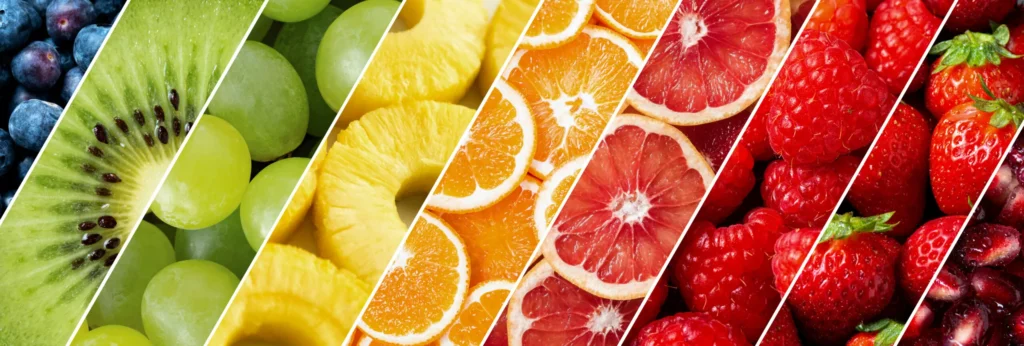
This discovery has important implications, particularly for those who regularly consume xylitol in sugar-free products like candy, chewing gum, baked goods, and toothpaste.
This article delves into the risks of xylitol and presents two safer alternatives: Allulose and monk fruit.
Xylitol and Cardiovascular Risks

Xylitol, a zero-calorie sugar alcohol, is commonly found in sugar-free products like candy, chewing gum, baked goods, and toothpaste. However, a recent study published in the European Heart Journal has linked high blood levels of xylitol to an increased risk of heart attack and stroke.
Researchers analyzed data from over 3,000 patients in the United States and Europe, discovering that xylitol promotes blood clotting, thereby increasing the likelihood of cardiovascular events.
Dr. Stanley Hazen, the lead researcher from the Cleveland Clinic’s Lerner Research Institute, emphasized the need for further investigation into the effects of sugar alcohols and artificial sweeteners on cardiovascular health.
While you don’t need to throw out all xylitol-containing products immediately, it’s important to be mindful of your intake and consult healthcare professionals about your dietary choices.
The study found that a third of patients with the highest xylitol levels in their bloodstream were more likely to experience a cardiovascular event.
Additionally, all measures of a person’s clotting ability increased after consuming a xylitol-sweetened drink, unlike those who drank a sugar-sweetened product.
Given these findings, it’s crucial to consider safer alternatives. Here, we explore two excellent substitutes: Allulose and monk fruit.
Allulose

Allulose is a rare sugar naturally found in small quantities in foods like figs, raisins, and jackfruit. It has gained popularity as a low-calorie sweetener with minimal impact on blood sugar levels.
Low-Calorie Content: Allulose contains about 0.4 calories per gram, significantly less than regular sugar’s four calories per gram. This makes it an excellent choice for reducing caloric intake.
Blood Sugar Control: Unlike regular sugar, Allulose minimizes blood glucose and insulin levels, making it suitable for people with diabetes or those monitoring their blood sugar. Studies show that Allulose can improve insulin sensitivity and reduce the postprandial glucose response.
No Tooth Decay: Allulose doesn’t contribute to tooth decay, offering a dental-friendly alternative to traditional sugars. It doesn’t ferment in the mouth, preventing cavity formation.
Due to its ability to mimic the taste and texture of sugar, Allulose can be used in various culinary applications, including baking, beverages, and cooking. It provides about 70% of the sweetness of regular sugar so recipe adjustments may be necessary. Its unique properties make it ideal for frozen desserts, preventing ice crystal formation and resulting in a smoother texture.
Monk Fruit
Monk fruit, also known as luo han guo, is a small green gourd native to southern China. Its sweetness comes from natural compounds called mogrosides, significantly sweeter than sugar.
Monk fruit extract is often combined with other sweeteners like erythritol to balance the sweetness and provide a sugar-like texture.
Zero Calories: Monk fruit sweeteners contain no calories, making them ideal for weight management and reducing overall caloric intake.
Blood Sugar Stability: Monk fruit doesn’t raise blood glucose levels, making it safe for people with diabetes and those looking to maintain stable blood sugar levels. Research shows that monk fruit sweetener doesn’t impact glycemic response, making it a good option for diabetic-friendly diets.
Antioxidant Properties: The mogrosides in monk fruit have antioxidant properties, offering additional health benefits. Antioxidants help protect the body from oxidative stress, which can lead to chronic diseases and inflammation.
Monk fruit sweeteners are available in various forms, including liquid, powder, and granules. They are highly versatile and can be used in beverages, baking, and cooking.
Since monk fruit is much sweeter than sugar, only a small amount is needed to achieve the desired sweetness. Its high sweetness potency means it can be used in very small quantities, further reducing overall calorie intake.
Conclusion
The recent findings on xylitol highlight the importance of reevaluating the use of certain artificial sweeteners in our diets. While xylitol has been popular for its zero-calorie content, the potential cardiovascular risks highlighted by the study warrant caution.
As the consumption of artificial sweeteners continues to rise, consumers must be informed about the potential health impacts.
Allulose and monk fruit emerge as safer and healthier alternatives, offering sweetness without the adverse effects of xylitol. By incorporating these alternatives into our diets, we can enjoy the sweet taste we crave while safeguarding our health.
Allulose provides a low-calorie, blood sugar-friendly option perfect for various culinary uses. With its zero calories and antioxidant properties, Monk fruit offers a potent and health-conscious substitute for sugar.

